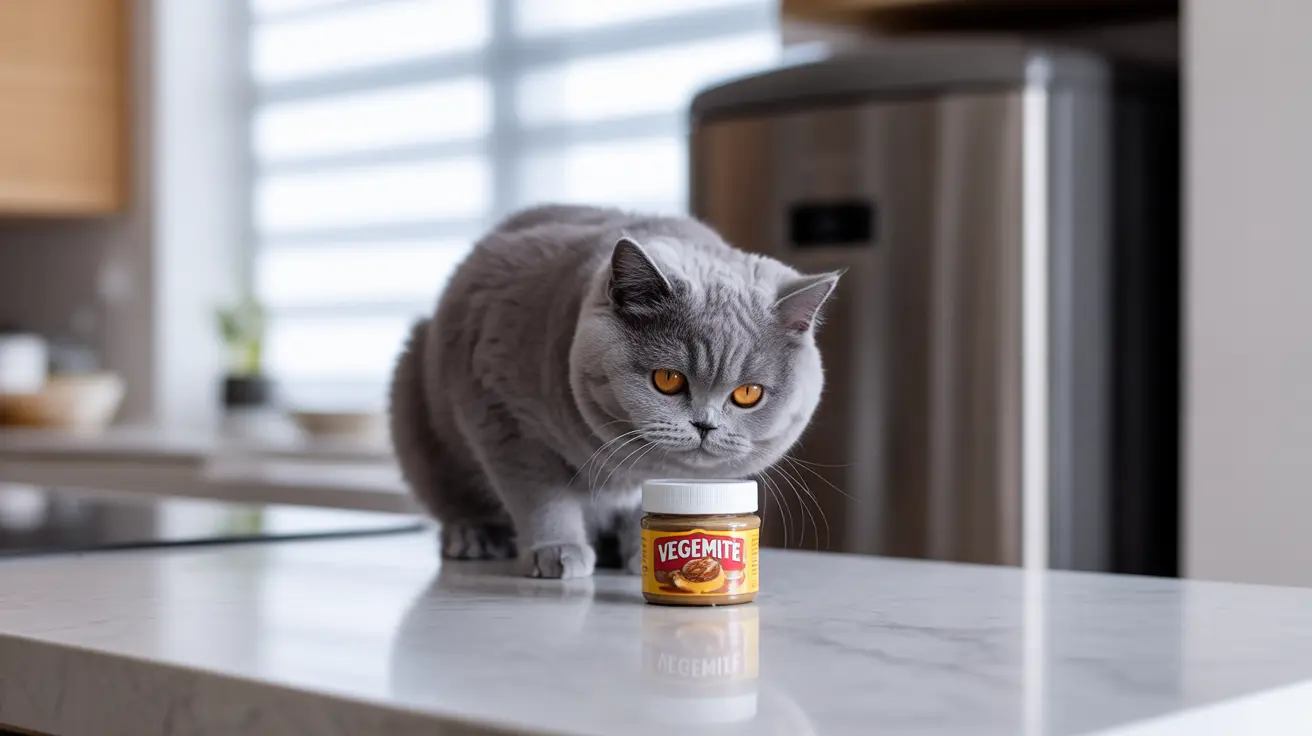What Is Vegemite and Why Cats Are Attracted to It
Vegemite is a dark brown Australian food spread made from leftover brewer's yeast extract, a by-product of beer manufacturing. The spread contains B vitamins, various seasonings, and notably high amounts of sodium. Its strong umami flavor and intense aroma can intrigue cats, who are naturally curious about strong-smelling foods.
Despite cats' potential interest in Vegemite, their attraction doesn't indicate it's safe or suitable for consumption. Cats are drawn to novel scents and textures, but their dietary needs are vastly different from humans.
The Health Risks of Feeding Vegemite to Cats
The primary concern with cats consuming Vegemite is its extremely high sodium content. A single teaspoon contains approximately 165mg of sodium, which is excessive for a cat's dietary needs. This high salt content can lead to several health issues:
- Dehydration
- Sodium ion poisoning
- Increased blood pressure
- Kidney strain
- Gastrointestinal upset
Why Cats Don't Need Vegemite in Their Diet
Cats are obligate carnivores, meaning their bodies are designed to derive nutrition primarily from meat sources. While Vegemite contains B vitamins, cats need to obtain these nutrients from animal-based sources in specific forms their bodies can properly utilize.
A cat's natural diet should consist of:
- High-quality animal protein
- Essential amino acids like taurine
- Animal-based fats
- Minimal carbohydrates
Safe Alternatives to Vegemite for Cats
Instead of Vegemite, consider these healthy treat options for your cat:
- Small pieces of cooked, plain chicken
- Commercial cat treats formulated for felines
- Tiny amounts of cooked fish (without seasoning)
- Freeze-dried meat treats designed for cats
Signs of Salt Toxicity in Cats
If your cat has consumed Vegemite, watch for these symptoms of salt poisoning:
- Excessive thirst and urination
- Vomiting
- Diarrhea
- Lethargy
- Tremors
- Loss of appetite
- Seizures (in severe cases)
Frequently Asked Questions
Is it safe for my cat to eat Vegemite occasionally?
While a tiny lick of Vegemite isn't typically dangerous, it's not recommended to feed Vegemite to cats at all. The high salt content makes it unsuitable as a treat, and there are no nutritional benefits for felines.
What health risks can Vegemite's high salt content pose to cats?
Vegemite's high salt content can lead to dehydration, sodium ion poisoning, increased blood pressure, and kidney problems in cats. Even small amounts can contribute to long-term health issues.
Why isn't Vegemite a suitable treat for obligate carnivore cats?
As obligate carnivores, cats require nutrients from animal sources. Vegemite, being a plant-based product, doesn't provide the appropriate form of nutrients cats need and contains excessive salt and unnecessary additives.
Can a small lick of Vegemite harm my cat, and when should I be concerned?
A single small lick of Vegemite likely won't cause immediate harm to a healthy cat. However, if your cat consumes a larger amount or shows any unusual symptoms, contact your veterinarian immediately.
What are healthier treat alternatives to Vegemite for my cat?
Healthier alternatives include commercial cat treats, small pieces of cooked plain meat, or specialized feline treats. Always choose treats specifically formulated for cats and avoid human foods high in salt or additives.
Conclusion
While Vegemite isn't toxic to cats in minimal amounts, it's best to keep this Australian favorite away from your feline friends. Focus instead on providing species-appropriate treats and maintaining a balanced, veterinarian-approved diet. Your cat's health and well-being depend on making informed choices about their nutrition.






